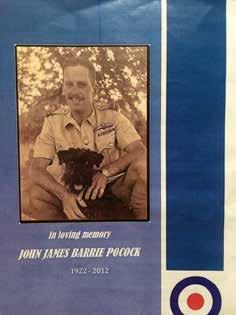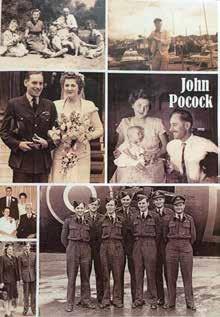
4 minute read
Development Office
300
Stay in touch...
@ChurchersAlumni
Development Office
This past year has been another very busy, unpredictable but productive one for the Development Office. Like many others, we spent a good deal of time organising, rescheduling and cancelling events, much to everyone’s frustration. We also had to innovate…
The annual 1722 Society lunch, attended by supporters of the Richard Churcher Foundation, went online including a remote Sixth Form enrichment lesson from History teacher, Hannah Swindells. With OC Day and the competition for the Eaton trophies unable to happen at school, the Captains of Sport challenged the Old Churcherians via some ingenious filming of themselves passing a rugby ball, hockey ball and netball to their virtual team mates. The OCs responded in force and in the absence of an on field referee, it was declared a draw!
We are delighted that we now have over 1,000 Old Churcherians, former parents, staff and other supporters signed up to the Churcher’s Community – https://Community. ChurchersCollege.com – our online portal where the school and wider community can connect, interact with one another and share information. Through this, the Development Office shares news from school, Old Churcherians and the community, promotes and sells tickets to events, publishes recent school and Development Office publications and hosts the school archive, where you can access the Churcherian magazine from 1914!
Please stay in touch with Churcher’s by creating a profile and/or updating your communications preferences at Churcher’s Community – https:// Community.ChurchersCollege.com.
Mr N Smith
Head of Development

Mark Preston (73) Switzerland
‘Doing the family history’ has been a common occupation for many years, especially for we retirees. Several months’ enjoyable research threw up some chance discoveries and unexpected coincidences.
My father’s family, the Pococks, are an old Isle of Wight family, with my branch of the family moving to the mainland – Bromley, then still in Kent – in 1818. Unaware of this, it was quite coincidental that, upon return from New Zealand in 1969 with my parents, we chose to live in Hampshire and I was accepted at Churcher’s. More striking was the discovery that I was not the first family member to attend Churcher’s. Two second-cousins of my father, John J.B. Pocock and Anthony Pocock, both Hampshire-born, were both at Churcher’s during WW2.
Both boys came from a military background, with both their father James, (Royal Navy, Fleet Air Arm) and their grandfather, also James (Royal Engineers), seeing service. As is inevitable with service families, tours of duty in various parts of the country were often short-term. So, John Pocock was at Churcher’s only from 1938 to 1940 – he left at the end of the Fifth Form to go straight into the RAF, right in the summer of 1940, with the Battle of Britain gathering pace. I am sure I cannot fully appreciate what he faced at such a time and what bravery he was required to show.
Happily, John Pocock survived the ordeal of aerial combat, although I have no details of his service record. We do know that he did stay on in the RAF after the war, and that he was aircrew, retiring with the rank of Flight Lieutenant in the late 40s. He married Lena in April 1946 and they decided to go out to what was then Southern Rhodesia. They settled in Bulawayo, where all his three children were born, and where he set up the John Pocock Estate Agency in 1955, a company that still trades and still carries his name today, in modern day Zimbabwe, with branches in Bulawayo and Harare.
John died in Natal, South Africa, in 2012 at his son’s house, where he spent his final years. His pastime in those final years was… doing the Pocock family tree! John’s half-brother is the retired Surrey and England cricketer, Pat Pocock, who has been key in piecing this story together, and who presented me with a copy of John Pocock’s work, which thankfully matched my own research. Anthony Pocock’s story is, sadly, shorter. He started at Churcher’s in 1940 at age 15, and went up through into the Sixth Form where he was a Prefect. He left in 1944 and it is noted in the school records that he went into the Fleet Air Arm. In October 1947, at age 21, he was playing rugby for the Royal Navy at their grounds in Gosport when he suddenly died on the pitch.
A Hampshire Telegraph report of the inquest said that the RN Surgeon Commander advised the Coroner that Anthony had an undetectable condition in his liver/spleen, which meant that death could be brought on by ‘the slightest shock, mental or physical’. He is buried in Haslar Royal Naval Cemetery and remembered on the grave of his grandfather, Major James Pocock, OBE, in the village of Evercreech, Somerset.
Just like the two brothers themselves, I imagine that their Churcher’s contemporaries are no longer with us. But I felt compelled to record their passing through ‘my’ school: a reminder of school days and of expectations that would have been quite different to what most of us have since known.










